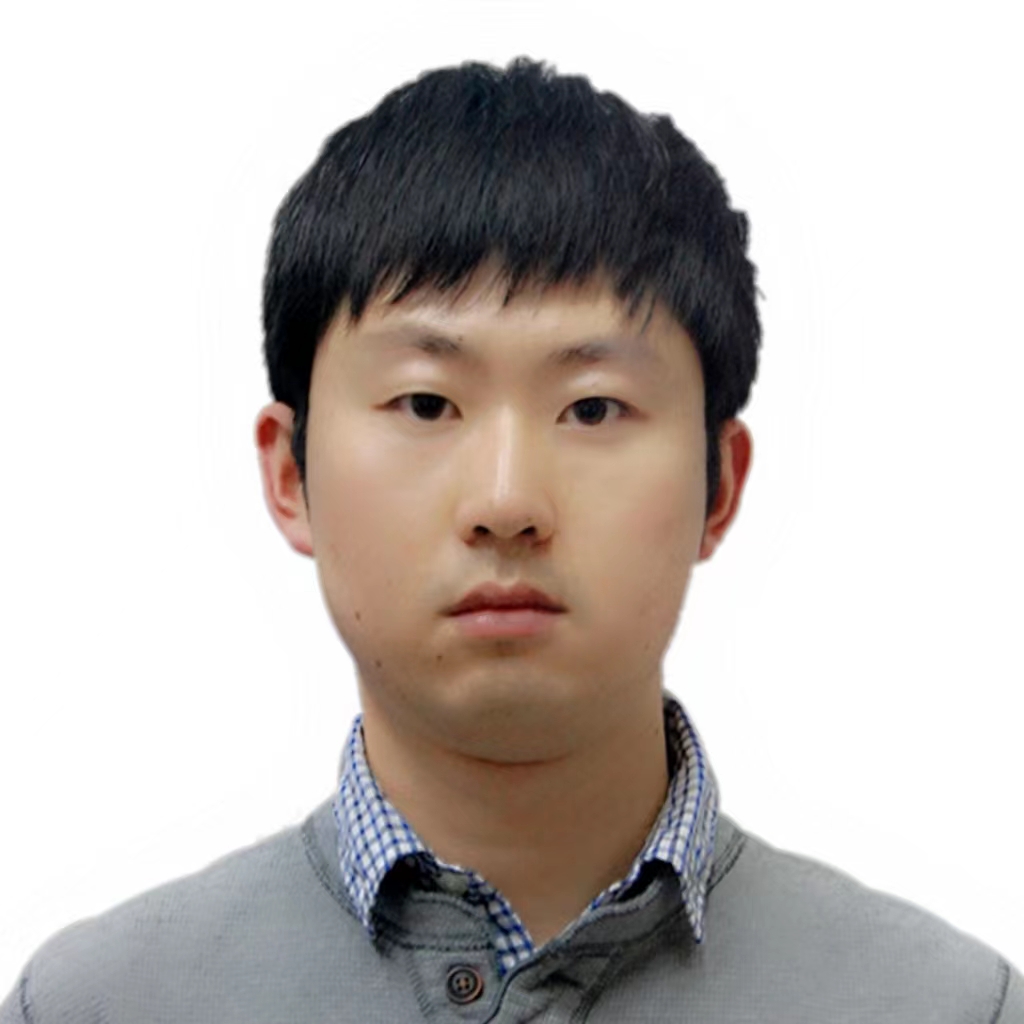Publications
Journal Articles
- Zhuangyan Fang*, Shengyu Zhu*, Jiji Zhang, Yue Liu, Zhitang Chen, Yangbo He, Low rank directed acyclic graphs and causal structure learning, IEEE Transactions on Neural Networks and Learning Systems (TNNLS), 2023. (*equal contribution)
- Ran Chen, Shoubo Hu, Zhitang Chen, Shengyu Zhu, et al., A unified framework for layout pattern analysis with deep causal estimation, IEEE Transactions on Computer-Aided Design of Integrated Circuits and Systems (TCAD), 2022.
- Zitong Lu, Zhi Geng, Wei Li, Shengyu Zhu, Jinzhu Jia, Evaluating causes of effects by posterior effects of causes, Biometrika, 2022.
- Zhuangyan Fang, Yue Liu, Zhi Geng, Shengyu Zhu, Yangbo He, A local method for identifying causal relations under Markov equivalence, Artificial Intelligence (AIJ), Feburary, 2022.
- Shengyu Zhu, Biao Chen, Zhitang Chen, and Pengfei Yang, Asymptotically optimal one- and two-sample testing with kernels, IEEE Transactions on Information Theory (TIT), April 2021.
- Shengyu Zhu and Biao Chen, Distributed detection in ad hoc networks through quantized consensus, IEEE Transactions on Information Theory (TIT), August 2018.
- Shengyu Zhu and Biao Chen, Quantized consensus by the ADMM: Probabilistic versus deterministic quantizers, IEEE Transactions on Signal Processing (TSP), April 2016.
- Ge Xu, Shengyu Zhu, and Biao Chen, Decentralized data reduction with quantization constraints, IEEE Transactions on Signal Processing (TSP), April 2014. (corresponding author)
Referred Conference Proceedings
- Ruiqi Zhao, Lei Zhang, Shengyu Zhu, Zitong Lu, Zhenhua Dong, Chaoliang Zhang, Zhi Geng, Yangbo He, Conditional counterfactual causal effect for individual attribution, UAI, 2023. (spotlight presentation; first two authors were interns at Noah’s Ark Lab)
- Xiaoyu Tan, LIN Yong, Shengyu Zhu, Chao Qu, Xihe Qiu, Xu Yinghui, Peng Cui, Yuan Qi, Provably Invariance Learning without Domain Information”, ICML, 2023.
- Yong Lin, Shengyu Zhu, Lu Tan, Peng Cui, ZIN: When and how to learn invariance without environment partition?, NeurIPS, 2022. (spotlight presentation; corresponding author)
- Junlong Lyu, Zhitang Chen, Chang Feng, Wenjing Cun, Shengyu Zhu, Yanhui Geng, Zhijie Xu, Para-CFlows: $C^k$-universal diffeomorphism approximators as superior neural surrogates, NeurIPS, 2022.
- Xiaopeng Zhang, Shoubo Hu, Zhitang Chen, Shengyu Zhu, et al., RCANet: Root cause analysis via latent variable interaction modeling for yield improvement, IEEE International Test Conference (ITC), 2022.
- Xinwei Shen, Shengyu Zhu, Jiji Zhang, Shoubo Hu, Zhitang Chen, Reframed GES with a neural conditional dependence measure, Conference on Uncertainty in Artificial Intelligence (UAI), 2022.
- Ruoyu Wang, Mingyang Yi, Zhitang Chen, Shengyu Zhu, Out-of-distribution generalization with causal invariant transformations, IEEE/CVF Computer Vision and Pattern Recognition Conference (CVPR), June 2022. (corresponding author)
- Iganvier Ng, Shengyu Zhu, Zhuangyan Fang, Haoyang Li, Zhitang Chen, Jun Wang, Masked gradient-based causal structure learning, SIAM Conference on Data Mining (SDM), May 2022. (corresponding author)
- Ran Chen, Shoubo Hu, Zhitang Chen, Shengyu Zhu, et al., A unified framework for layout pattern analysis with deep causal estimation, IEEE/ACM International Conference On Computer Aided Design (ICCAD), November 2021.
- Xiaoqiang Wang, Yali Du, Shengyu Zhu, Liangjun Ke, Zhitang Chen, Jianye Hao, Jun Wang, Ordering-based causal discovery with reinforcement learning, International Joint Conference on Artificial Intelligence (IJCAI), July 2021. (corresponding author)
- Shengyu Zhu, Ignavier Ng, and Zhitang Chen, Causal discovery with reinforcement learning, International Conference on Learning Representations (ICLR), Addis Ababa, Ethiopia, April 2020. (highest review score and oral presentation; top 1.6%)
- Shengyu Zhu, Biao Chen, Pengfei Yang, and Zhitang Chen, Universal hypothesis testing with kernels: Asymptotically optimal tests for goodness of fit, International Conference on Artificial Intelligence and Statistics (AISTATS), Naha, Okinawa, Japan, April 2019.
- Shengyu Zhu and Biao Chen, Distributed detection over connected networks via one-bit quantizer, IEEE International Symposium on Information Theory (ISIT), Barcelona, Spain, July 2016.
- Shengyu Zhu and Biao Chen, Distributed average consensus with bounded quantization, IEEE International Workshop on Signal Processing Advances in Wireless Communications (SPAWC), Edinburgh, UK, July 2016.
- Shengyu Zhu, Mingyi Hong, and Biao Chen, Quantized consensus ADMM for multi-agent distributed optimization, IEEE International Conference on Acoustics, Speech and Signal Processing (ICASSP), Shanghai, China, March 2016.
- Shengyu Zhu and Biao Chen, Distributed average consensus with deterministic quantization: an ADMM approach, IEEE Global Conference on Signal and Information Processing (GlobalSIP), Orlando, FL, December 2015. (IEEE travel grant)
- Shengyu Zhu, Ge Xu, and Biao Chen, Are global sufficient statistics always sufficient: the impact of quantization on decentralized data reduction, Asilomar Conference on Signals, Systems, and Computers (Asilomar), Monterey, CA, November 2013. (invited paper)
- Shengyu Zhu and Biao Chen, Data reduction in tandem fusion systems, IEEE China Summit and International Conference on Signal and Information Processing (ChinaSIP), Beijing, China, July 2013.
- Shengyu Zhu, Earnest Akofor, and Biao Chen, Interactive distributed detection with conditionally independent observations, IEEE Wireless Communications and Networking Conference (WCNC), Shanghai, China, April 2013.
Some Preprints and Workshop Papers
- Ignavier Ng, Shengyu Zhu, Zhitang Chen, Zhuangyan Fang, A graph autoencoder approach to causal structure learning, NeurIPS Causality Workshop, 2019.
- Keli Zhang, Shengyu Zhu, Marcus Kalander, Ignavier Ng, Junjian Ye, Zhitang Chen, Lujia Pan, gCastle: A Python Toolbox for Causal Discovery
Patents
- Root cause positioning method for communication network fault and related equipment, granted, CN113923099B (in accordance to SDM’2022 paper, with modifications for new applications)
- Chip fault identification method and related equipment, under substantive examination (last round before granted), CN113657022A (in accordance to ICCAD’2021 and TCAD’2022 papers)
- Defect root cause determination method, defect root cause determination device and storage medium, under substantive examination, CN115238641A (in accordance to ITC’2022 paper)
- Data processing method and related equipment item, under substantive examination, CN115905932A (in accordance to CVPR’2022 paper)
